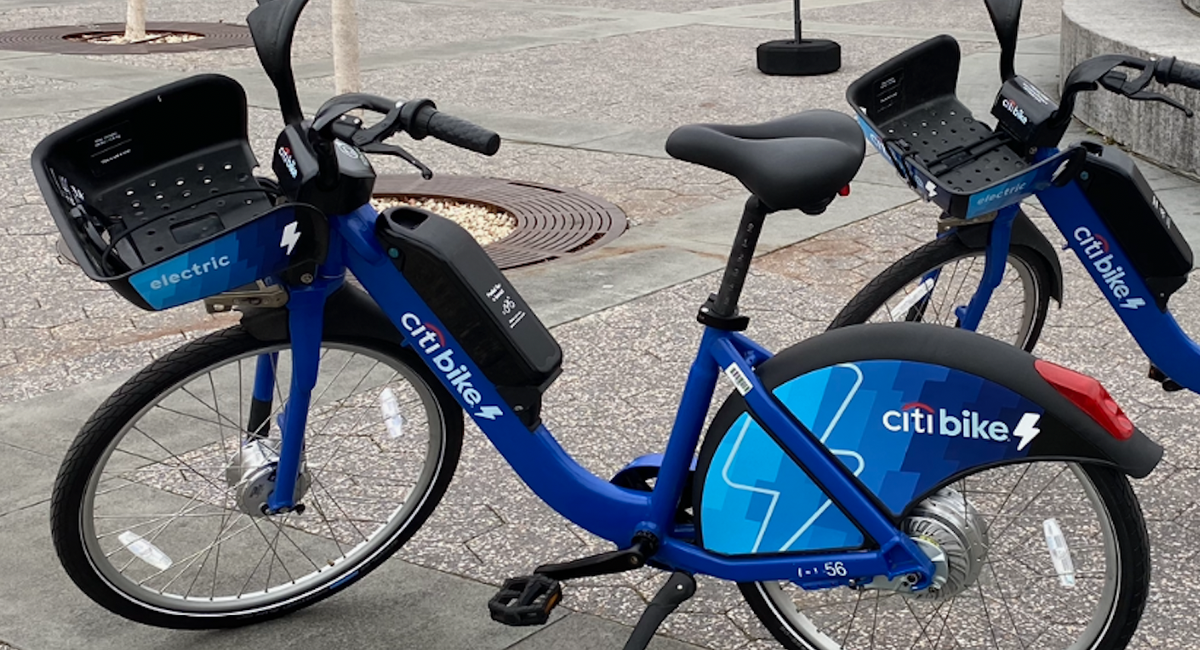E-Bikes on Club rides
E-bikes

E-bikes are showing up on our rides more and more frequently and are probably here to stay. A properly used E-bike can make it possible for an older rider or one who has suffered a stroke or other debilitating issue to keep on riding instead of being relegated to watching bike races on TV. These guidelines are intended to balance the advantages of E-bikes for some people with the need for safe and controlled riding on group rides for all riders.
E-bikes for recreational riding are new and evolving. These guidelines are subject to change and revision as E-bikes evolve. Our advice that you take a new bike on a several-mile test ride is especially important for a new E-bike.
We have had some issues with E-bikes, mainly because people get one and jump on a group ride before taking the time to thoroughly understand their bike.
There are presently three categories of E-bikes: Class 1 and 3 E-bikes are defined as pedal assist with a maximum assisted speed of 20 or 28 m.p.h. respectively. Class 2 E-bikes (throttle type bikes) are the type often used by delivery riders and work without pedaling. NYCC permits pedal assist E-bikes under the circumstances described in this memorandum. Throttle type bikes are not permitted on any Club ride.
E-bikes are significantly heavier than most road bikes and riders need to be sure their bike has a full battery charge before starting a ride and to have a plan for getting home if the battery is discharged or there is a mechanical problem that cannot easily be fixed on the road.
We expect E-bike riders to ride with their group as if they were using a normal bike. That is, stay behind the leader unless cleared to ride at your own pace and be aware of the limitations and characteristics of E-bikes. Because an E-bike is considerably heavier than most riders’ bikes it can cause more damage to yourself or other riders if you collide with another cyclist. It may be less maneuverable in close quarters (especially the heavy type) than a normal road bike. Pedal-assist E-bikes rely on using one’s gears and pedaling to get up a hill. The motor alone will not do it for you.
Pedal-assist E-bikes are permitted on C and B rides at a listed pace of 16 m.p.h. or less and on faster B rides at the leader’s discretion. At present, E-bikes will not be permitted on A rides. Participants in SIG rides will not be permitted to use E-bikes.
It is the rider’s responsibility to know their type of E-bike. Maximum tire width currently permitted is 2” or 48mm. Before joining an NYCC ride with an E-bike, the rider must be thoroughly familiar with its use, including smooth starting & stopping plus how to adjust speed with a combination of proper gearing and pedal-assist power. The rider must be able to adjust his/her pace to stay in a proper place in the line of riders.
An E-bike rider must be fully aware of battery range, which is generally dependent on terrain. If your range is 40-65 miles, do not sign up for a 60-mile hilly ride, or if you do, expect to be riding on your own when your battery runs out.
Some rides involve subway transits at one or both ends. If the bike is too heavy for you to carry up or down stairs, you will need to find the closest station(s) with elevators or escalators. It is your responsibility to know if a ride involves stairs or other impediments and if a designated station for a ride, like the #1 242nd Street subway station, a popular station to use at the end of a ride, does not have an elevator. You need to know where the nearest accessible station is or be prepared to ride all the way home.
E-bike riders must be aware of the possibility that train conductors will not allow their bikes on a train. Metro-North, LIRR and NJ Transit currently officially prohibit “motorized bicycles.” Nevertheless, some conductors will allow E-bikes but one cannot count on that happening. The issue usually is that most E-bikes are larger and heavier than a normal road bike and may block aisles.
If in doubt about your ability to comply with these guidelines contact your ride leader in advance of the ride. Ride leaders have discretion to modify these guidelines in an appropriate case or to prohibit E-bikes from their ride.
NYCC February 27, 2021


